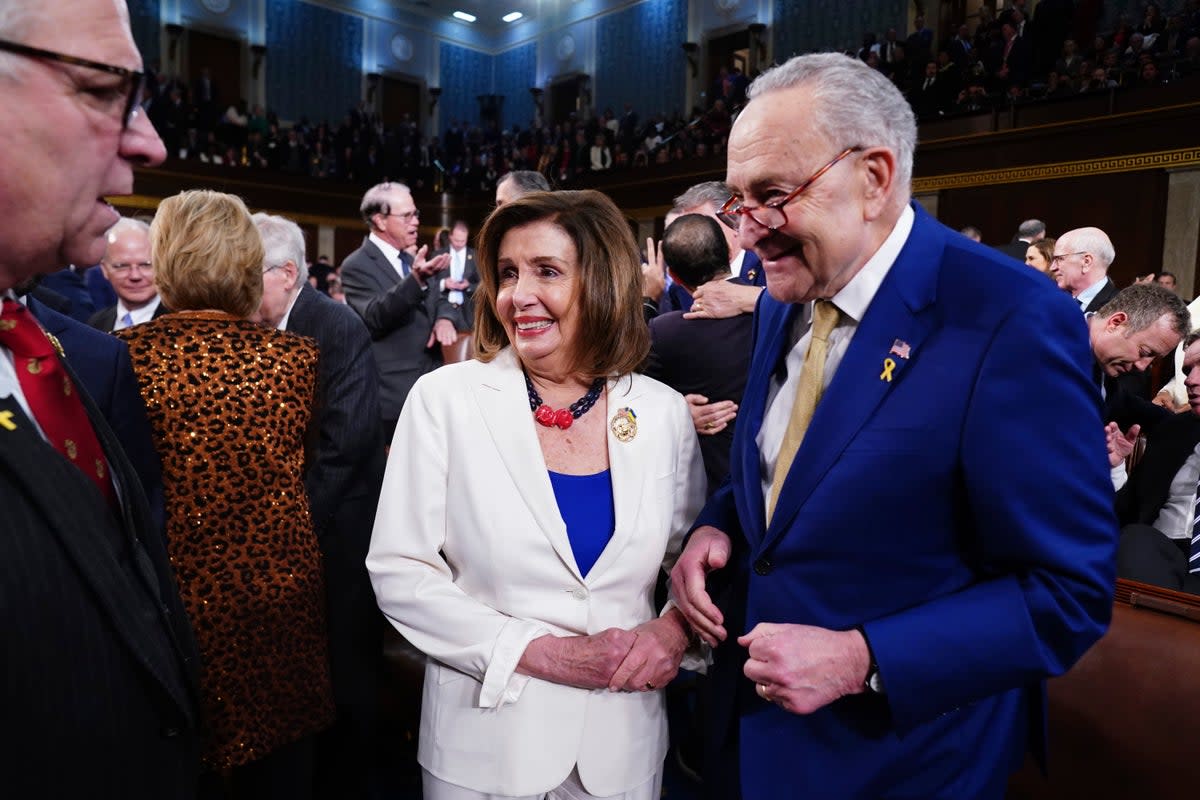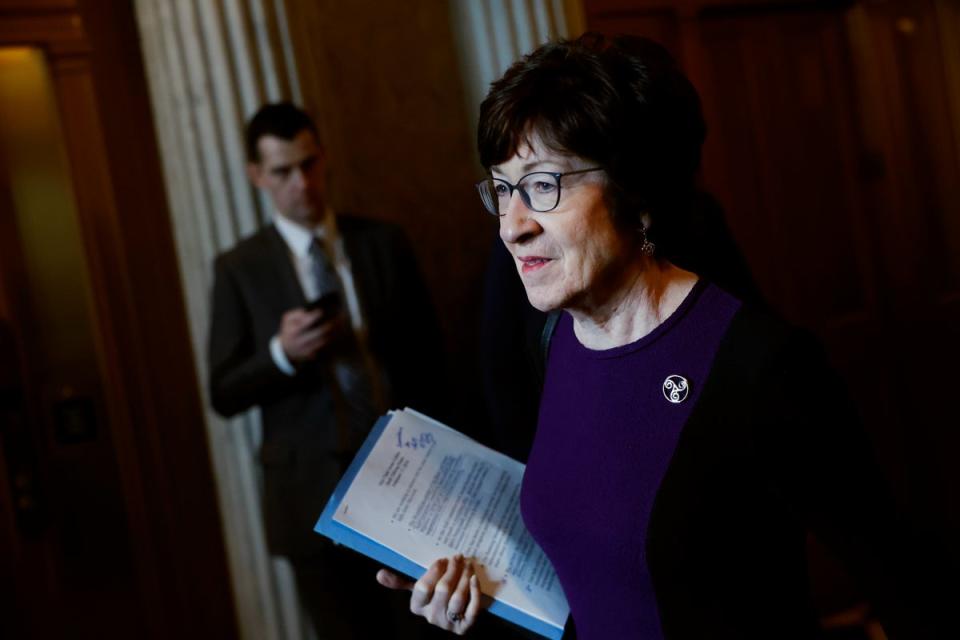Government shutdown narrowly avoided after late night Senate vote

- Oops!Something went wrong.Please try again later.
- Oops!Something went wrong.Please try again later.
A partial government shutdown was narrowly avoided when the Senate passed a six-bill package to ensure funding through September.
The Senate voted 75 to 22 on Friday night just before a midnight deadline. Joe Biden then signed the bill into law on Saturday.
The package provides $460bn in funding for parts of the government.
Senate Majority Leader Chuck Schumer praised the cooperation between the parties that enabled the bill's passage.
"We have good news for the country," he said just before the vote. "We will keep important programs funded for moms and kids, for veterans, for the environment, for housing and so much more. Because both sides cooperated today, we've taken a major step towards our goal of fully funding the government. Today's bipartisan agreement gives us momentum and space to finish the remaining appropriation bills by March 22."
He said that despite deep political divides, the passage of the funding measure showed that Congress can still govern.
“To folks who worry that divided government means nothing ever gets done, this bipartisan package says otherwise," he said.
Republican lawmakers threatened to hold out past the midnight deadline, demanding amendments to issues involving immigration. Even still, Democrats in the House managed to secure enough votes on Wednesday to move the package to the Senate.
While the bill does not provide full government funding, the package will cover energy, environment, agriculture, transportation, housing, and veterans issues. It also will provide funding to the Justice Department.

Senator Susan Collins, the top Republican on the chamber's appropriations committee, urged her colleagues to vote in favour of the funding.
“Do we really want a veteran who has bravely and loyally served his country, and is now trying to file a claim for benefits, to find that the Veterans Benefits Administration’s doors are closed to him or her? Is that what we want to have happen?” Ms Collins said. “Why in the world would we want to shut down the government and stop serving the American people?”
The Office of Management and Budget announced on Friday night that it had stopped "shutdown preparations" because the funding had been passed.
"Because obligations of federal funds are incurred and tracked on a daily basis, and the President will sign the bill tomorrow, agencies will not shut down and may continue their normal operations tomorrow," the agency said in a statement.
In order to fully fund the government, Congress will need to pass an additional six spending bills. Lawmakers have until 22 March to pass the remaining legislation. The remaining bills will provide the Defence Department, Homeland Security, and the State Department funding to continue operating.
Several federal agencies will be subject to cuts as part of the latest funding measure. The FBI, the EPA, the ATF will all face cuts.
Despite the shrinking of the federal agencies, Republicans in the House Freedom Caucus were still not pleased with the result, complaining that the package "punts on nearly every single Republican policy priority".

